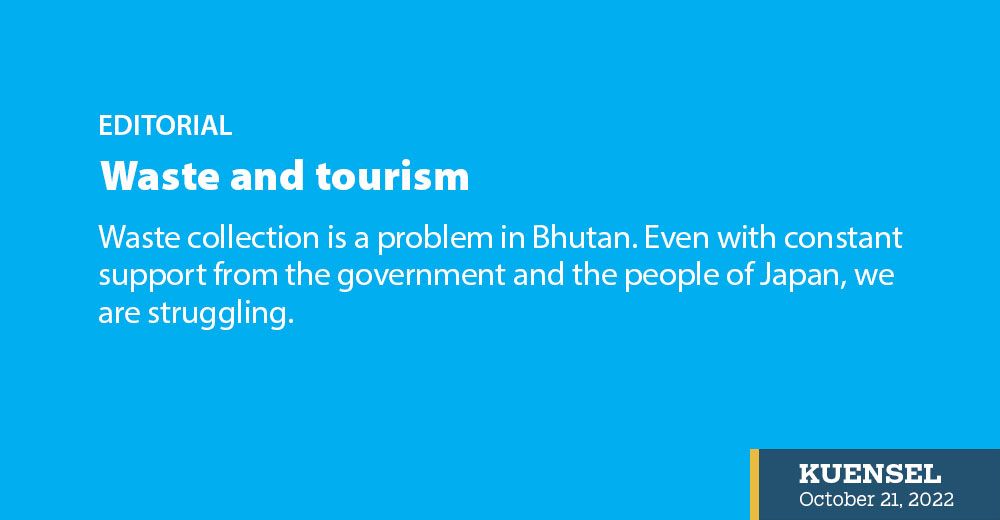Waste collection is a problem in Bhutan. Even with constant support from the government and the people of Japan, we are struggling.
But there is new hope with the Japanese trainers teaching waste handlers in Bhutan.
The waste managers were trained on the maintenance of equipment that JICA supported to the four thromdes, waste collection and landfill management techniques.
Is that enough, though? Support is appreciated, deeply. The problem is that there are systemic challenges to overcome. That’s why the initiative to teach the Bhutanese about waste equipment and waste itself is significant.
What we must know is that the people and the government of Japan are well aware that what they give to Bhutan is not being utilised properly.
Only very recently, the government and people of Japan gave Bhutan 28 compactor trucks, three dumper placers, two backhoe loaders, an excavator and a bulldozer, and 24 containers worth Nu 330 million to four thromdes to improve waste collection in the country.
The initiative is a part of the Project to improve solid waste management under the Grant Aid Project with the Japanese government. It is shameful that our friend from so far away has to teach us how to manage our waste.
Recently, when picnickers returned home on the Blessed Rainy Day, a large number of plastic waste, PET bottles, wrappers, and other non-biodegradable waste were left lying around in many popular picnic spots in the capital.
As a country widely known for environmental conservation, not being able to manage our waste is an anathema that should pain us to the deepest core.
There was a self-appointed waste captain, not so long ago, who used to walk around with a stick in his hands. That was when Bhutan was just opening up to international tourists. What the late Tsilyon Chogyel did back then is something that the thromdes need to keep up with.
Waste is our own problem. We need to solve it. It’s about discipline. And, we all know that discipline is a culture that must be inculcated.
It is upon the thromdes to work out an efficient system of management of waste. The trompons of the big town must lead with examples. Mayoralty is not about the position; it is about responsibility.
A good city is a good city because it is a clean city. At a time when Bhutan is opening in a new way, cities will define what truly Bhutan is.


